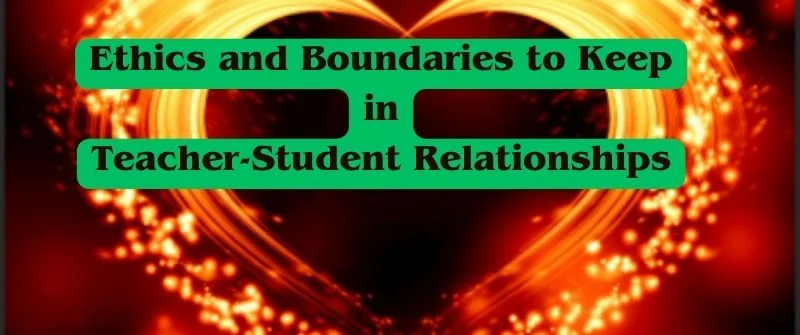Many institutions have a code of conduct that spells how a teacher or a professor should handle relationships with the students. From high school to universities, institutions have clearly set ethics and guidelines dictating how teacher-student relationships should work.
Such ethics prevent the occurrence of such relationships in the institutions of higher learning and protect the interest of the student and the professor.
Several universities around the world have a provision of how a tutor should relate with the students, and has set serious boundaries that should not be broken.
A more considerable percentage of different universities banned such relationship because sexual harassment on the ground of abuse of power is a violation of human rights.
Professor-Student Relationship Ethics
To succeed as a member of the faculty, a professor should uphold ethics at the highest levels. One of the ways is by avoiding dating a student since it may degenerate into a conflict of interest.
Additionally, there is a provision for the affected students to report such incidences according to the institution’s protocol. The authority will investigate and take appropriate actions such as dismissal or termination of employment for the lecturer whine found guilty.
When someone is in power, it is normal to get attracted to him/her. A student may date a lecturer for the wrong reasons, like getting good grades or monetary benefits. Such actions may result in awarding a student wrong grades at the expense of integrity.
Professor Dating Student Policy
There should be the quality of intellectual exchange between a student and a professor. Any sexual and romantic relationship between a professor and a student may compromise academic professionalism. Different universities prohibit such relationships since most of them end up as exploitative or abusive.
Furthermore, some institutions do not tolerate a professor supervising or providing advisory to a student they have or previously had a romantic relationship.
In several cases, if a professor has a romantic relationship, then the conduct prohibits the lecturer from:
- Informally or formally mentoring a student
- Supervising any assignment given to the student
- Evaluating students like sitting in a defense committee
- Participating in any activity or program like rewarding work, conferring benefits or sanctioning conduct.
- Working collaboratively on a given project
When a professor fails to comply with the code of conduct, he/ she may face a disciplinary step, including termination. Some decisions may affect the tenure and promotion of the professor.
A student may report such a relationship to the institution’s authority for further investigation. The University has an obligation to perform an investigation and resolve under the set procedures.
Consequences of Professor-Student Consensual Relationships
Academic Outcomes
When a professor befriends a student for sexual and romantic favors, there could be a compromise of the quality of credentials the affected students may have. First off, the student may get undeserved grades at the expense of integrity. When such students land in the labor market, he or she is likely to be incompetent since the qualifications were due to academic dishonesty.
Legal outcomes
When the professor violates the university policies by having sexual relationships with the students, one may face legal action. Among the effects of such actions when found guilty is demotion, termination or dismissal.
Emotional Drain
If such a relationship exists in a faculty, other innocent students may have poor morale towards studies. There could be a feeling that favoritisms may lead to rewarding the wrong students with suitable grades. Also, the learning environment would not sound interesting since other hardworking students may feel that they lack nobody to appreciate their efforts.
How to Prevent Romantic Professor-Student Relationships
Several universities around the world developed measures to end this menace of the professor-student relationship.
As discussed above, such a relationship had severe consequences, leading to the institutions making deliberate efforts to end them. Several methods are practical in ending such vices. We can divide them into the following sections:
The Students
As a student, you must read the university rules and policies and understand them thoroughly. Among those policies are on how to relate with your professor.
For the avoidance of doubt, if the professor harasses you on such grounds, you should report to the concerned authority for further action.
Additionally, the students should not willingly enter into such a relationship after knowing the consequences of such moves.
The Professors
Among the provisions of a professor in many institutions is understanding the ethics and practices concerning relationships. A professor should stick to such rules without bending to student pressures for such favoritisms.
More importantly, a professor should understand the consequences of using sex as a weapon to exploit the students. That said, it would be reasonable for the professors to shun away from such actions.
The School Administration
The administration must set rules and regulations which are in the interest of both the student and its lecturers. Some of such steps are to place stringent measure to curb such unacceptable actions.
Furthermore, the administration can set up guiding and counseling sessions for affected students and restore them to the right path. Again, the authority should take stern actions against anyone who violates such policies to signal those who could be doing it.

I am an educational writer and blogger focussing on tech, education, and life improvement.
